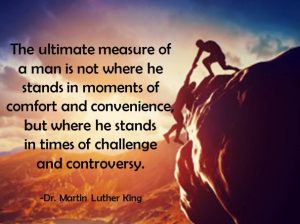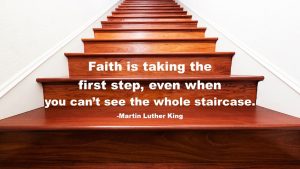Why is gratitude a spiritual discipline?
Having a daily discipline of gratitude influences how we spend the resources that have been gifted to us: our time, our energy, our talents, and our money. Regardless of present life circumstances, being grateful for all of our life experiences –the good and the bad–is life-changing. If this concept does not make sense to you, keep reading. I hope the examples will help you understand the power behind practicing a daily discipline of gratitude.
 A musician practices discipline by following through with his intention to rehearse daily for an upcoming performance —even when he feels like taking the day off. An Olympic athlete practices discipline by following through with her intention to keep training for the next qualifying competition —even when she doesn’t feel like it.
A musician practices discipline by following through with his intention to rehearse daily for an upcoming performance —even when he feels like taking the day off. An Olympic athlete practices discipline by following through with her intention to keep training for the next qualifying competition —even when she doesn’t feel like it.
All of this is part of a spiritual discipline.
Intention
Practicing a spiritual discipline requires you to focus on your intention rather than allowing how you feel in any given moment to determine what you do.
Many people set goals in a vacuum with no connection to a greater purpose and to the people and priorities they care most about. When you set goals and make decisions within the context of what is truly important in your life, it’s much easier to determine what matters and what doesn’t.
As you set goals, do you ask yourself what you want, or do you ask yourself what you are intending to attract?
The word “want” typically represents the things you wish to have. The word “intention” represents the experience you choose to create—how you wish to be. For example, you may want to eat some greasy processed junk food when you’re feeling hungry, and that does not support your intention to be healthy.
Life is about choices. You make choices every single moment that move you toward or away from your intentions. Set goals and take action steps that are based on your commitment to your intentions, not on how you feel at any given moment. If you allow how you’re feeling to determine whether or not you will take the action steps you’ve committed to, you probably won’t follow through much of the time.
Perception vs. Reality
We’ve all heard the saying, “Perception is reality.” Your perception of your reality is what creates your reality. The key to changing your reality is to shift what aspects of an event or experience you choose to focus on. Here’s an interesting exercise that exemplifies the power of shifting your focus:
Tell someone about a life experience as if it were a tragedy, emphasizing all the terrible aspects of that experience.
Now tell the same story as an uplifting and delightful experience, focusing on all the good aspects of that same experience and what you are grateful for.
The actual facts do not change, but what you choose to focus on when you tell the story makes a huge difference in how you feel about your circumstances.
Being grateful for the good things that happen in our lives is easy. It’s much harder to be grateful for all of our life experiences—the good as well as the bad, the moments of joy as well as the moments of sorrow, the successes as well as the failures.
There is always good around us, even in difficult times. How often do you take time to reflect on the many good things in your life that you may have rejected or ignored—conversations you were too busy to have, unnoticed smiles, gifts you refused to share, or simple pleasures and graces gone unnoticed? By contrast, how often do you complain about something? When you complain, you affirm the opposite of what you want.
As good stewards of what we have been given, it is not just a good idea to share with others…it’s our responsibility. Having a daily discipline of gratitude enables us to be cheerful givers, offering to others what we have been given — freely and generously with a sense of joy — with no expectation of anything in return.
Being grateful for all of life’s experiences is where spiritual discipline comes into play.

“If you change the way you look at things,
the things you look at change.”
-Wayne Dyer
I coached a client (I’ll call him Tom) who was a small business owner in the start-up phase of his business. He was working long hours, and he was stressed to the max. I had just taught Tom a weekly planning process that was designed to help him build greater balance into his life. As Tom and I went through the planning process together, I asked him, “What are one or two intentions you have this week as a father?” He said, “I have to spend more time with my kids.”
Since “have to” is victim language, I asked him, “Do you have to or do you choose to spend more time with your kids?” He was silent for a long time before he responded: “I choose to, and I have never thought of it that way before. I love my kids, and I want to spend more time with them. It’s just that for so long, my wife has been nagging at me to leave the office and be more involved in my kids’ lives that I never stopped to think about the fact that I really do want to spend more time with them!”
 A week later, during our coaching appointment, Tom told me that he’d had one of the best weeks he could remember ever spending with his kids. He still had the same amount of work at the office. His circumstances had not changed, but he changed his focus — from being the victim of a nagging wife and a tyrant of a boss to himself — to choosing a more active role as a father.
A week later, during our coaching appointment, Tom told me that he’d had one of the best weeks he could remember ever spending with his kids. He still had the same amount of work at the office. His circumstances had not changed, but he changed his focus — from being the victim of a nagging wife and a tyrant of a boss to himself — to choosing a more active role as a father.
Cheryl’s Story of Gratitude
Several years ago, my church started hosting a Safe Parking Program for women and families living in their cars. We recognized that women who are homeless and have a vehicle face the challenges of where to park their car without fear of being ticketed or harassed. We also recognized that homelessness can be isolating, and the benefits of being part of a community with trusted relationships can be life-transforming. At times, we’ve had as many as 28 cars (with women and children living in them) parked in our church parking lot.
I’ll share the story of Cheryl, a Safe Parking guest, as it was recently shared in our church bulletin.
In 2017, Cheryl left her Mississippi home to move in with Seattle-based relatives who promised shelter and caregiving while she battled stage-four metastatic breast cancer. Shortly after arrival, her family was unable to keep their commitment to shelter and care for her. Although Cheryl became homeless, she remained resilient through this unexpected displacement. She was grateful to be alive.
Cheryl soon discovered that Seattle’s high cost-of-living overwhelmed her limited budget, which consisted of disability and social security benefits. She sifted through endless pamphlets and brochures, researching and applying for emergency shelter.
Just when her physical endurance began to wane, Cheryl learned about the Safe Parking Program and immediately checked it out. Cheryl and her dog, Shiloh, were so grateful to be welcomed guests as car campers in early December 2017. She was amazed to learn that the church opened its doors at night to offer a warm refuge during severe cold snaps, during which time church volunteers graciously left the comfort of their own homes to serve as hosts during these overnight hours when the building would normally be locked.
Cheryl has since found a resident-managed transitional housing facility in Seattle. She has moved out of our church parking lot and into a place where she serves as a volunteer cook and dishwasher for her new roommates.
What’s most amazing about Cheryl is her good nature and easy smile. Health crisis and dire straits did not dim her luminous spirit. Her energetic and positive disposition has been perplexing, given her struggle with homelessness and stage-four cancer.
 Those who know Cheryl and are spiritually attuned do not stand in wonder or disbelief. They understand the miracle that faith and gratitude contribute to Cheryl’s life. Her story is a great example of how the discipline of gratitude can transcend a situation beyond human understanding.
Those who know Cheryl and are spiritually attuned do not stand in wonder or disbelief. They understand the miracle that faith and gratitude contribute to Cheryl’s life. Her story is a great example of how the discipline of gratitude can transcend a situation beyond human understanding.
As I look back on some of my most painful life experiences, I recognize the gifts I’ve received from all of them. I would not be where I am today without each of those experiences. For that, I am grateful.
For more than a decade, I’ve practiced the spiritual discipline of beginning my day by expressing gratitude to someone I appreciate. This simple discipline sets a positive tone for the whole day and has had a profound effect on my relationships.
 I encourage you to start a spiritual daily discipline of beginning your day by thinking of someone you are grateful for and sending them a card to express your gratitude. I started doing this more than 14 years ago, when I was in a deep depression, and after doing it for seven days in a row my depression had lifted. Do this daily for one week, and then please comment below about what has shown up in your life as a result.
I encourage you to start a spiritual daily discipline of beginning your day by thinking of someone you are grateful for and sending them a card to express your gratitude. I started doing this more than 14 years ago, when I was in a deep depression, and after doing it for seven days in a row my depression had lifted. Do this daily for one week, and then please comment below about what has shown up in your life as a result.
If you’d like help recognizing the gifts you receive from all aspects of your life– the good as well as the bad, the moments of joy as well as the moments of sorrow, the successes as well as the failures–let’s schedule a no-cost, no-pressure Discovery Call today.
Additional Resources:
- Blog: The Power of Gratitude in Times of Challenge (four parts): Part 1, Part 2, Part 3, Part 4
- Blog: The Power of Expressing Daily Gratitude
- Guide: Gratitude Journal
- Guide: Cultivating Happiness: Living Life on Your Terms
- Guide: Find Your Strengths & Choose Your Success











Thank you Kathy for this perfect message. I so appreciate your wise words.
How beautiful dear Kathy…I try to remember to be grateful for opening my eyes every day realizing that I am alive and I should make the best out of every moment, since when this moment is gone, it is not coming back again…I have many many things to be grateful for, above all, love of my family and friends like you..Thank you 🙏💞💞💞💞
Thank you, Sheida. I, too, am grateful for our friendship. I look forward to the day when we can speak face-to-face, not just by phone.